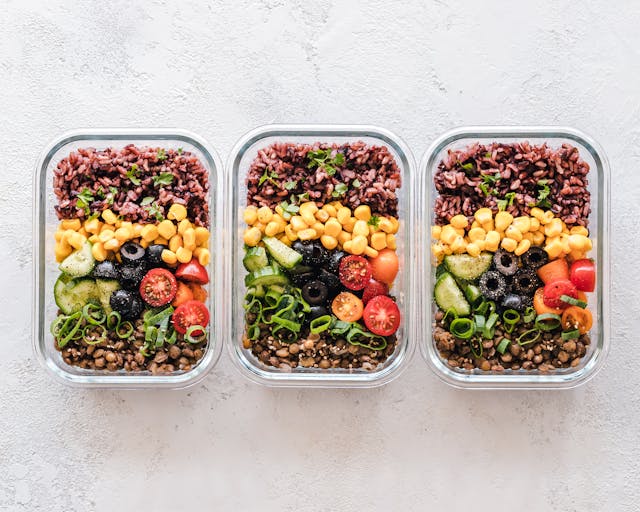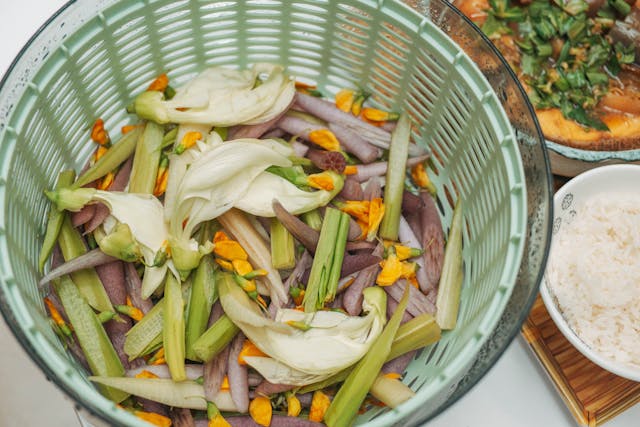Overall diet does matter for a healthy aging experience. For example, those with the Mediterranean diet have been shown to enjoy an overall longer lifespan. No matter what your older loved one likes to eat, it’s critical to assist them with nutrition and meal planning for the most healthy lifestyle.
A huge part of caring for elderly loved ones includes nutrition. Read on to better understand nutrition and meal planning for the special older individuals in your life, including planning their diet based around their specific needs and lowering the overall sodium intake through properly formatted diets.
Remember Proper Caloric Intake
According to Open Oregon, older women typically need 1,600-2,200 calories, while older men need 2,000-2,800 calories. Your loved one must get enough calories. Too much will be detrimental to their health, as will too little. Either side of the spectrum can make it trickier to complete daily tasks.
Ideally, your elderly loved one should be at a healthy weight for a sustained, happy life. If they need to lose weight, we have healthy options to incorporate into your diet, such as our Healthy Chicken Wraps and Falafel Wraps.
On the other hand, your seniors might need to gain weight to have energy to get through their daily tasks. In that case, consider adding heavier recipes to their diet, such as Homemade Pizza and Vegetable Lasagna.
We recommend meal prepping, especially if you are the sole caretaker of your elderly relative. This can help make meals easier both for you and your senior if you aren’t there. Most of the recipes linked in this article make 6-8 servings, making it easy to store the rest. Just be sure to invest in some quality glass containers and label each with a date the food should be consumed by. This way, your senior could also heat a meal in the microwave in your absence (if they are physically able), or a friend or family member could easily help for a few hours without worrying about preparing dinner.

Pick from Proper Nutrient Groups
It’s vital to have an excellent mix of nutrients throughout the day for each older adult to offer energy, vitamins, and more. Each plate should have at least a little of each selection.
According to Harvard, here are the ideal nutrient groups seniors should eat from:
- Vegetables
- Fruit
- Whole grains
- Healthy fats
- Healthy proteins
Each senior should have a proper balance of these items throughout their day.
The goal of each meal should not be about the quantity of the products on the plane, but about the quality. For example, instead of hitting the mark for carbohydrates in quantity, focus on getting a complex carbohydrate instead. Instead of using any oil, consider adding healthy ones to your plate like olive oil or all-natural Irish butter options.
Add Fruits and Veggies to Every Meal
Fruits and veggies should be inside every meal, and they also make excellent snacks throughout the day if necessary. Fruits and vegetables are an excellent source of fiber, which regulates bowel movements. They also have ample vitamins and minerals.
Seniors should have at least five servings of fruits and vegetables in their place, which could include some of the following:
- Avocados
- Oranges
- Carrots
- Spinach
- Blackberries
- Raspberries
These are simple to add to any diet and should be encouraged.
If you’re struggling to help your older loved one meet these needs, choose recipes that incorporate ample fruits and veggies. We have a few that meet this requirement, such as Salmon Poke Bowls, Vegetable Stir-Fry, and Spinach and Feta Pastries.
Pick Fortified Foods
Fortified foods are traditional food selections with added vitamins and minerals. They also have micronutrients, which the body can’t create on its own. Many pastas, breads, and juices come in fortified iterations.
The older a body gets, the trickier it is for it to absorb vital minerals and vitamins. Thus, it’s crucial to pick foods fortified with additional products for maximum health benefits. They will assist with digestion in older adults, fortify the bones, and keep heart issues at bay. Plus, most fortified food selections are cost-effective for those who want to save some money.

Lower Sodium Intake
Sodium intake is a necessary part of nutrition and meal planning for elderly loved ones, especially if they suffer from heart or blood issues. Having too much sodium can raise blood pressure, which can lead to heart failure, renal disease, coronary heart disease, and a possibility of a stroke.
One of the best ways to lower sodium intake is by simply using recipes with less salt or adding less salt to your meals. Consider basic recipes like salmon filets and use other spices. There are also lower sodium salt options, such as iodized and kosher.
Drink Ample Water
When nutrition and meal planning for elderly loved ones, ensure there is at least one glass of water with every meal. Seniors must prioritize drinking water for their current and future health.
Some of the most significant reasons to include water in your senior’s diet include the following:
- It lowers thirst
- It enhances metabolism
- It boosts brain function
- It maintains urinary health
- It helps digestion
- It manages the kidneys
These functions create a far better overall environment in the body. Learn more about healthy hydration in our blog article on the topic.
Encourage your elderly loved one to have some water whenever they eat. If it makes it easier, consider investing in a case of bottled water every week or so to ensure they have simpler access.
Maintain Solid Protein Intake
Protein is an essential nutrient to include in meal planning and nutrition for aging loved ones. Many seniors suffer from sarcopenia, which is age-related muscle loss. Seniors should do moderate exercise and ingest ample protein to keep the loss of muscle at bay.
We have several meal options that meet these requirements. Options for meal planning with protein in mind include Lemon Chicken and Rice, Pepper Steak, and Turkey Meatloaf.
Work With Specific Health Requirements
Every senior has specific health requirements, so it’s critical to consider the personal health issues of your aging loved one before determining the best meal selections for their week. For example, you wouldn’t provide a senior trying to keep a vegetarian diet with the same things as someone attempting to lower their overall cholesterol.
Common meal plan options could include the following:
- Vegetarian
- Vegan
- Keto
- Low-carb
- Low sodium
These are healthier choices that vary by senior.
If your elderly loved one is trying to cut out meat, you’ll need to find other ways to incorporate protein into their diet, such as through black beans and lentils. If they are trying to keep their carbohydrates at bay, try to provide complex carbohydrate options when they enjoy bread. Each detail matters in elderly nutrition and meal planning.


















Leave a comment